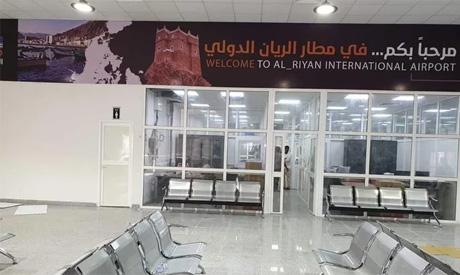UN: 700 persons displaced in Yemen in two weeks


The United Nations (UN) announced on Thursday that the escalation of clashes in Al-Hudaydah governorate, west of Yemen, has led to the displacement of at least 700 people since mid-January.
Resident representative serving in Yemen, Auke Lootsma, announced in a statement: "The concerns over civilians' safety in the southern areas of Al-Hudaydah governorate are rising after the escalation of clashes since mid-January, including the bombing of residential areas, which put thousands of locals at risk."
Lootsma added: "Initial reports indicate that civilian casualties have already occurred. Houses and farms have been destroyed in the districts of Hays and Ad Durayhimi and more than 100 families have been displaced, at least 700 people."
The UN official stressed that these: "Indiscriminate attacks on residential areas constitute a violation of international humanitarian law and it must stop immediately."
He added: "The involved parties must remember that it is their duty to take all necessary measures to protect civilians at all times and to allow humanitarian workers to assist the wounded and displaced. Up to eight civilian casualties have been reported in Al-Hudaydah in one week since 20 January, while dozens of houses and farms have been destroyed."
"There is an urgent need for an immediate cessation of hostilities to allow humanitarian workers to assess the needs and provide the necessary medical support to injured civilians and material support to those who have been displaced and lost sources of livelihood," according to Lootsma.
The UN official asserted that the number of civilian casualties in Al-Hudaydah is a constant source of concern. In the last three months of 2020, 153 civilian casualties (killed or wounded) were reported in the governorate, which is the highest number recorded across the country.
Although the Stockholm Agreement, signed between the government and the Houthis in 2018, provides for a permanent truce in Al-Hudaydah, battles take place from time to time amid mutual accusations of violating the ceasefire agreement.
Yemen has been witnessing armed clashes for nearly seven years, leading to the deaths of 233,000 people and causing 80 per cent of the population of around 30 million Yemenis to become dependent on aid to survive, amid the world's worst humanitarian crisis, according to the UN.
The complexity of the conflict is further exacerbated by the fact that it has regional implications. Since 2015, an Arab coalition led by Saudi Arabia has been launching military operations in support of pro-government forces against the Iranian-backed Houthis, who control several governorates including the capital Sana'a since 2014.

Aden — Yemen Airways has announced new updates to its ticket cancellation (VOID) policy, introducing financial penalties on travel agents in…

Geneva – The United States announced that Yemen will not be among the countries benefiting from a new $2 billion funding pledge for United Na…

Paris — The French humanitarian organization Acted announced that it has delivered cash assistance to nearly 89,000 people affected by displa…